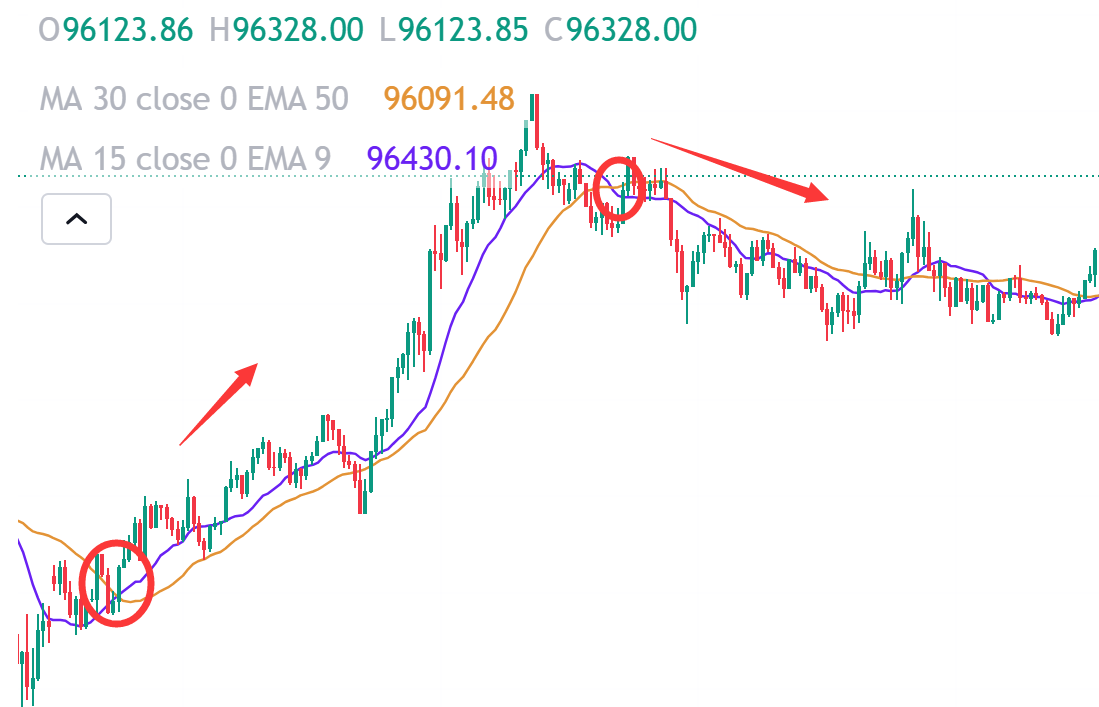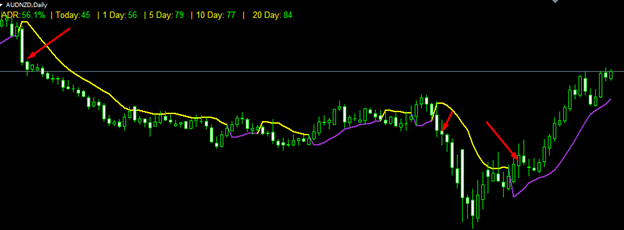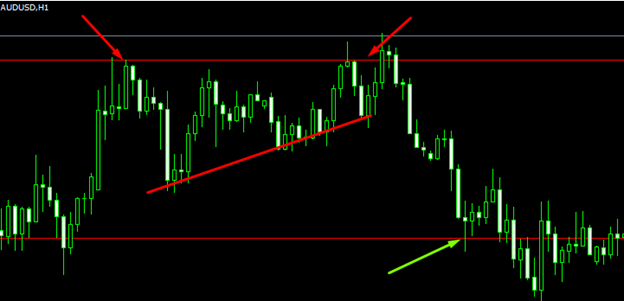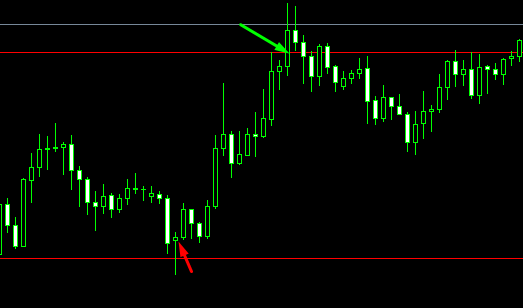.jpg)
Are you tired of struggling to make consistent profits in the forex market? Do you want to take your trading game to the next level and achieve financial freedom through forex trading? Look no further than this comprehensive guide on 7 powerful forex trading strategies and tips.
Forex trading can be both exciting and daunting. On one hand, the potential for high returns is a major draw for many traders. On the other hand, the volatile nature of the markets can lead to significant losses if you don't have a solid strategy in place.
That's where these powerful forex trading strategies and tips come in. Whether you're a beginner or an experienced trader, these proven techniques will help you increase your profits and minimize your risk.
Why Do You Need A Forex Trading Strategy?
A forex trading strategy is a systematic approach that traders use to determine when to buy or sell a tradable instrument. A well-crafted strategy includes both entry and exit parameters, which helps eliminate guesswork from the trading process.
Successful forex traders know the importance of planning ahead before taking a position in the market. Trading without a plan can be compared to gambling blindly on the market's direction. While it may work for some time, the chance of long-term success is low.
A solid forex trading strategy provides clarity on where the market MAY be headed. The emphasis on“may” is because even the best forex trading strategies don't guarantee 100% accuracy in predicting the market's direction—they only give you a high probability of directional bias, giving traders an edge in the markets.
The 3 Main Categories of Forex Trading Strategies
There are three main types of forex trading strategies. They are covered below.
1. Scalping trading
Timeframe: Seconds to minutes
Suitable traders:
Those who can dedicate significant time to trading.
Traders with quick decision-making skills.
Individuals comfortable with high-frequency trading and small profits.
Scalping forex strategies are designed to capture micro-market movements within a short period. Most scalping forex strategies require you to target a few pips (usually less than 10) within 15 minutes or less.
For example, a scalper might watch a currency pair and wait for it to move up by a few pips before quickly buying and then selling it for a profit.
Scalping can be a highly effective way to make quick profits, but it also requires fast thinking and quick reflexes.
2. Range Trading
Timeframe: Minutes to days
Suitable traders:
Traders who can identify support and resistance levels.
Those who prefer structured market conditions with defined price levels.
Individuals who are patient and can wait for the right setups within a range-bound market.
Range trading strategies try to extract profits from the market when it is in a lull or moving with no bias toward a specific direction. In such a situation, the tradable instrument oscillates between specific higher and lower barriers. Such strategies attempt to help you catch the top or bottom of a move. You’ll then need to hold the trade and hope that the market returns to the previous top or bottom (depending on the trade direction).
For example, a trader might identify a currency pair that has been trading within a narrow range and then buy into it when it reaches the bottom of the range, holding onto the trade until it reaches the top of the range. This approach can be effective in markets that are range-bound, but it does require careful analysis to identify the barriers and determine when to enter and exit trades.
3. Trend Trading
Timeframe: Hours to days or weeks
Suitable traders:
Traders who can analyze market momentum.
Those who prefer a less active trading style compared to scalping.
Individuals looking for longer-term positions based on market trends
Trend following strategies generate trading opportunities in the general mid-term direction of the market. The logic behind such strategies is that the market is likely to continue in a specific direction for a period. Trend-following strategies basically try to “go with the flow".
Traders who use trend-following strategies look for patterns in the market that indicate a particular trend and then try to capitalize on that trend before it reverses. For example, a trader might identify an uptrend in a currency pair and then buy into it, holding onto the trade until the trend starts to reverse.
This approach can be highly effective in markets with clear trends, but it requires patience and the ability to ride out temporary setbacks.
7 Powerful Forex Trading Strategies For Consistent Profits
Now that you know some of the main categories of forex trading strategies, here are some powerful options you should consider adding to your trading arsenal. Remember, while these strategies can be highly effective, they are not infallible—none of them is.
They can help you generate profits, but you will also experience losing trades. Use them at your discretion. Try them out on the Mitrade demo account before risking your live funds with them.
Direct market access | Deal on rising and falling market | 24-hour trading | Limit and stop-loss for every trade
1. The EMA Crossover Strategy
The Exponential Moving Average (EMA) is one of the best technical indicators in forex trading. It helps you gain a directional bias on any chart with just one glance. EMA crossover strategies deploy two EMAs of different values (lower and higher) and take a position in the market based on the direction of the crossing.
Some popular EMA combinations for this strategy include 5 and 7, 10 and 20 (the combination used in our sample image), and 15 and 30. Generally, you should enter a sell trade if the lower value EMA crosses the higher value option from top to down, indicating a downward trend (as shown in the image above). If the lower value EMA crosses the higher value variant from the bottom, it signifies an upward trend.

In a buy trade, your Stop-loss limit should be set at the most recent low. In a sell trade, it should be set at the most recent high. The Take Profit level should be at least two times the Stop Loss Value. Some users of this popular trend-following strategy hold their position until they get an opposite crossing, but this increases the chances of losing some or all of your existing profits if the market makes a sudden reversal.
2. Gann Trend Following Strategy
The Gann trend-following strategy uses a technical indicator based on William Delbert Gann’s angles to determine the market’s next possible direction. This strategy may require you to download a technical indicator for your trading platform. For Metatrader 4, there are lots of Gann-related indicators available for free. One of them is shown in the chart below:

When the displayed Gann indicator shows a yellow ribbon, it signifies that the market has potentially entered a downtrend. The blue ribbon indicates an uptrend. Ideally, you should enter a position just after the close of the candle that triggered the color switch, which is marked by three arrows.
As shown on the chart, some of the trend switches were false dawns that could have resulted in losing trades. However, the successful trades were highly profitable. This is why you need to be careful with your Stop Loss and Take Profit limits when using this strategy.
Many users of this strategy place a Stop Loss limit at the low or high of the signal candle (the first candle that caused the switch) depending on the direction of the trade. They also trade without a designated Take Profit level, trailing profits instead.
3. Support and Resistance Strategy
This is a powerful range trading strategy that attempts to predict where the market is likely to turn. The logic is that the market will turn bearish at a resistance level and bullish at a support level. This means that at a resistance level, you enter a sell trade, and at a support level, you enter a buy trade.
There are many tools for establishing support and resistance levels, including Bollinger Bands, Pivot Points, Fibonacci Ratios, and more. Choose a specific method and research it extensively.
With Pivot Points, for example, you can map out the possible support and resistance levels for a day, week, or month, and take trades based on these levels. Below is a chart that demonstrates what trading off a support or resistance level looks like:

You can see how the price reacted at the top of the range (resistance) and the bottom of the range (support).
If you enter a sell at resistance, your profit target is the support level, and vice versa. The Stop Loss limit should be 10-20 pips away from the latest high or low before your entry.
4. Pinbar Strategy
The pinbar strategy is a technique that uses one element of Japanese Candlestick patterns to predict future price movement. The logic behind this strategy is that a pinbar indicates an upcoming reversal in the market, similar to an arrow created by the behavior of market participants. It is often used in combination with other strategies such as Support and Resistance for a higher probability of success.

The accompanying illustration depicts how the pinbar strategy works in practice. The red arrow highlights a pinbar formed exactly on a support zone in the chart. This market then experienced a mini bullish run. When using such strategies, your profit target can be set at the next support or resistance zone, or multiples of your Stop Loss value to achieve a good risk-to-reward ratio. Your Stop Loss limit should be placed below or above the pinbar, depending on whether it's a buy or sell trade.
5. Bollinger Bounce Strategy
The Bollinger Bands are a highly effective technical analysis indicator that has been in use for decades. It creates a channel around market movements on a chart, with the lower boundary acting as a potential support level if touched, and potentially causing a reversal. This behavior is demonstrated in the image below.
Gold real-time quote on Mitrade
In this case, wait for a bullish candle to close, then enter a buy trade. Place a Stop Loss limit a few pips below the latest low. Your target should be the upper Bollinger band. The accompanying illustration depicts the Bollinger Bounce strategy in action using a real-time gold quote on Mitrade.
6. Bollinger Breakout Strategy
Still based on the Bollinger Bands, this strategy is designed to help you identify the start of a new trend. Before the trend starts, Bollinger Bands enter a squeeze. A break of it in either direction signifies the possible start of a trend.
The red arrow highlights the squeeze, while the green arrow signifies the breakout. In the chart, entering a sell trade at the breakout of the lower Bollinger would have yielded a decent profit. Conversely, if the breakout occurs at the upper Bollinger, it signals a buy trade.
To execute a breakout entry, place a Stop Loss limit directly above or below the candles in the squeeze area. To secure your profits, use a trailing stop or a fixed profit target. If you're trading on MetaTrader 4, custom indicators like "DDFX" or "Tidane Trend" are based on the Bollinger Breakout strategy and can help improve your trading outcomes.
7. The London Breakout Strategy
The basic principle of this strategy is that the start of the London session (8 am British Summer Time) is typically when the day's direction is set for many trading pairs. To trade this strategy, open the 1-hour chart of the pair you are interested in and mark the high and low for the day (from the opening of the Asian session to the start of the London session).
For a buy trade, wait for an hourly candle to close above the existing high before the London session opens, and wait for an hourly candle close below the existing low for a sell trade.
In a buy trade, your Stop Loss limit should be set at the day's low, and vice versa for a sell trade. The Take Profit level should be at least two times the Stop Loss value.
Crucial Rules to Remember When Using a Forex Trading Strategy
Here are some important tips you should keep in mind when using any forex trading strategy:
No Strategy is Perfect: Forex trading strategies that worked well in the past may not work as well in the future. So, stay up-to-date on market trends and adjust your strategies accordingly.
Follow Money Management Principles: Using stop-loss orders for every trade and avoiding over-leveraging your trades are essential for limiting your losses and protecting your account.
Be Realistic with Profit Targets: To set realistic profit targets, consider the volatility of the currency pair you're trading. If the pair moves slowly, set lower profit targets, but if it's volatile, aim for higher profits.
Experiment with Time Frames: Choosing the right time frame that suits your trading style is crucial. Day traders may focus on shorter time frames like the 15-minute or 30-minute charts, while swing traders may prefer longer time frames like the 4-hour or daily charts.
Control Your Emotions: Avoid making impulsive decisions based on emotions like fear or greed. Waiting for the right opportunity to arise can help you make more profitable trades in the long run.
Keep a Trading Journal: Recording the details of each trade, including entry and exit points, profit or loss, and your thought process during the trade, can help you track your progress and identify patterns.
Diversify Your Portfolio: Spreading your trades across multiple currency pairs and using different trading strategies can reduce risk and help avoid losses from any single trade or currency pair.
Final Word
In conclusion, forex trading can be profitable if approached with the right strategy and mindset. The key to success is to find a trading strategy that suits your style and backtest it on a demo account before using it live.
Review the options we have provided in this article, choose the one you feel most comfortable with, and test it on a demo account (after conducting a backtest). Once the testing is complete, you can start trading with it on your live account, you'll be more prepared than ever to tackle the forex markets and achieve your trading goals.
Register demo account with Mitrade:
Free Demo TradingAccess a user-friendly platform and app to enjoy easy, low-cost trading. Manage risk using limit and stop orders.
Get Started
Before making any trading decisions, it is important to equip yourself with sufficient fundamental knowledge, have a comprehensive understanding of market trends, be aware of risks and hidden costs, carefully consider investment targets, level of experience, risk appetite, and seek professional advice if necessary.
Furthermore, the content of this article is solely the author's personal opinion and does not necessarily constitute investment advice. The content of this article is for reference purposes only, and readers should not use this article as a basis for any investment decisions.
Investors should not rely on this information as a substitute for independent judgment or make decisions solely based on this information. It does not constitute any trading activity and does not guarantee any profits in trading.
If you have any inquiries regarding the data, information, or content related to Mitrade in this article, please contact us via email: insights@mitrade.com. The Mitrade team will carefully review the content to continue improving the quality of the article.



